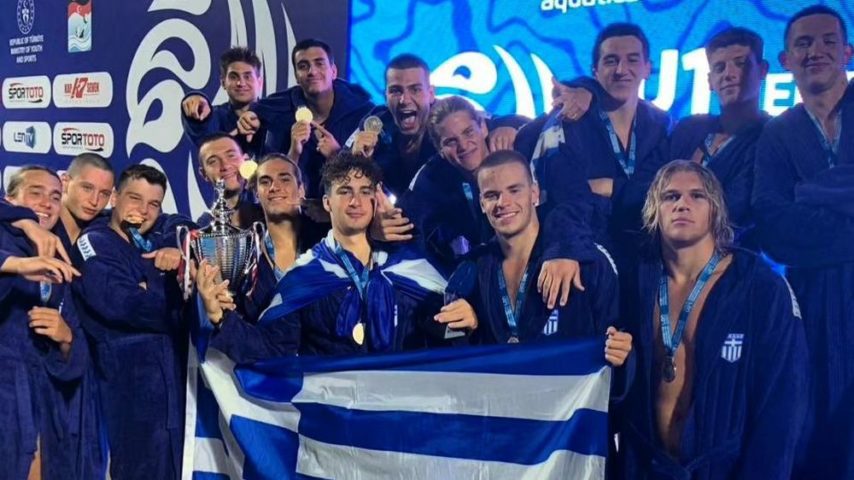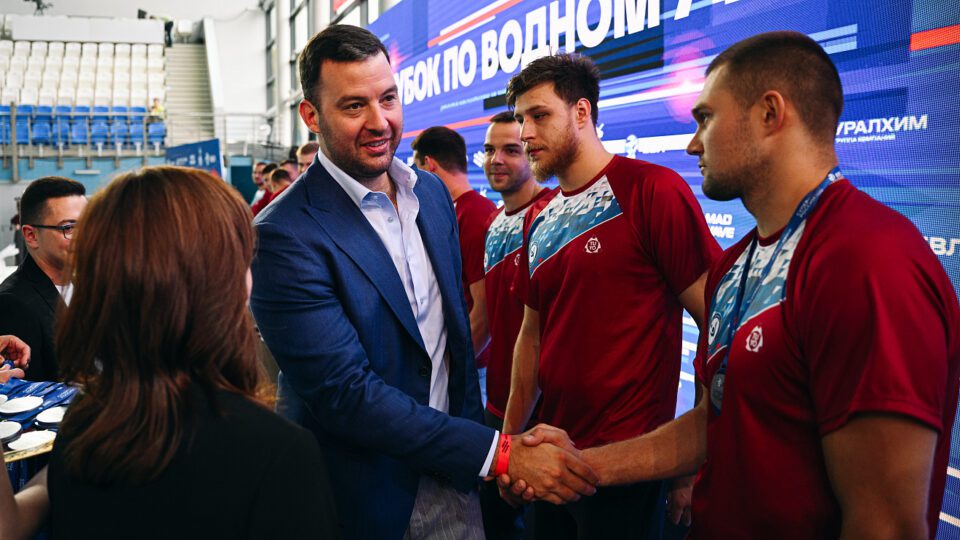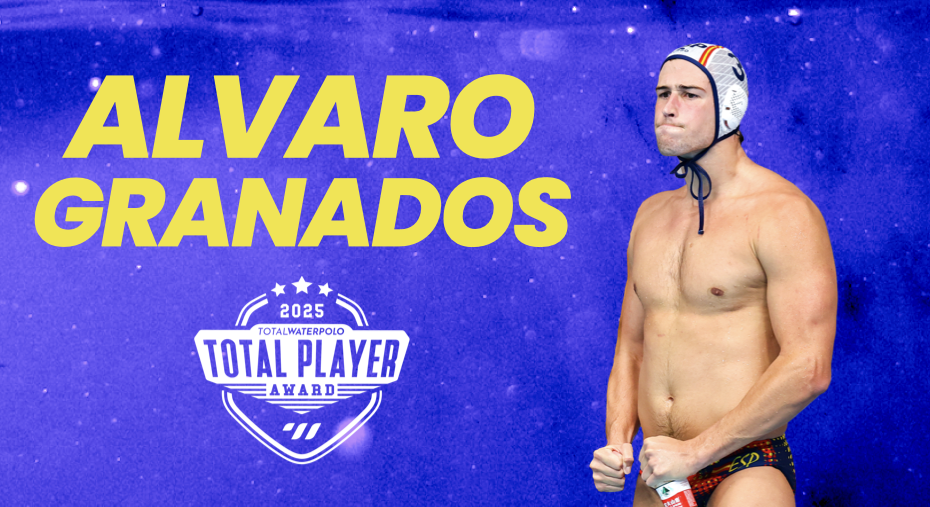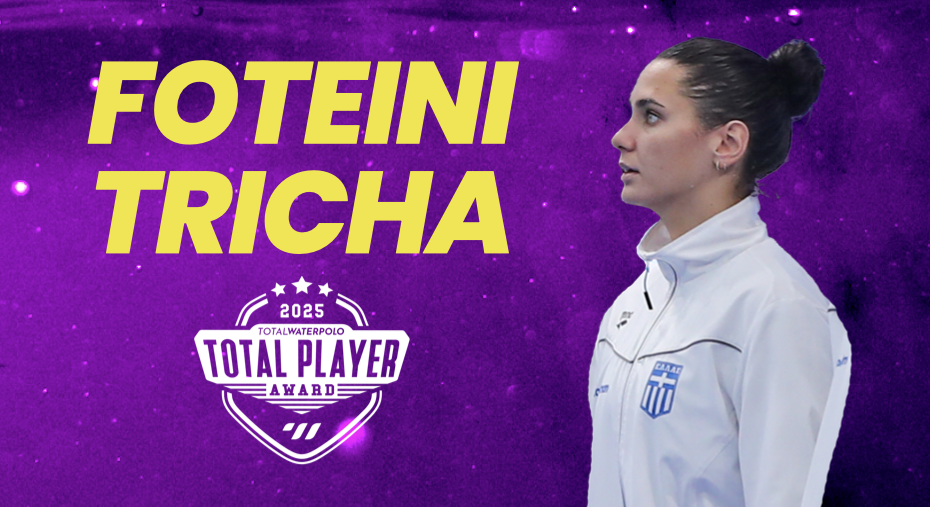The season of men’s major water polo World and European Championships ended in Manisa with the medal matches at the European U17 Championships. Greece won its first-ever gold medal at the Europeans for this age-group competition. Serbia took silver, Spain bronze, and Hungary finished in fourth place.
The same four nations played in the semifinals of the World Senior Championships in Fukuoka, where Hungary triumphed ahead of Greece and Spain, while Serbia left without a medal.
Congratulations to the senior teams, but today’s article is about those who are the future of water polo.
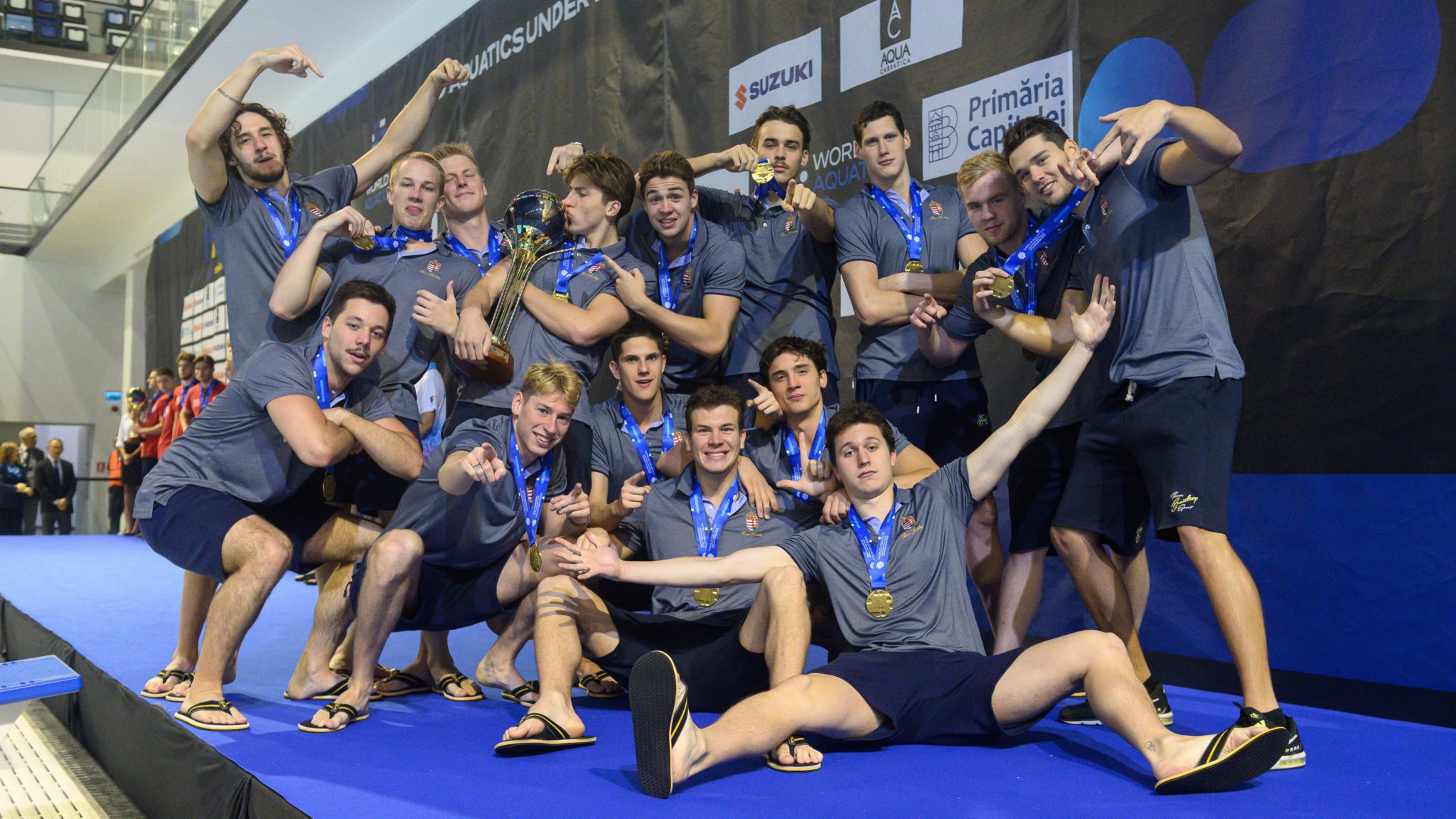
Hungary, the gold medal a the 2023 World U20 Championships Photo: Romanian Water Polo Federation
Total Waterpolo summarized the lists of the semifinalists at the cadet, youth, and junior World and European men’s championships for the players born in the 21st century.
According to the results of those tournaments, the future belongs to the semifinalists in Manisa. Of course, the results in the age-group tournaments are not the only criterion for predictions, but they are certainly a clear base that encourages those who win medals.
Before 2018, the FINA and LEN competitions had two age categories each. The youngest age group eligible for the European Championship was the U17 players.
4 Hungary, Greece and Serbia played in the semifinals at all four championships this summer (including the World Senior Championships). Hungary won three gold medals, Greece gold, silver and bronze, and Serbia two silvers.
The cadet competitions were included in LEN’s and World Aquatics’ calendars in 2019 when the first European U15 Championships was held. Since then, there have been three age group championships in each season except 2020, when all other cadet, youth and junior tournaments were canceled. Consequently, some generations had a chance fewer than others to prove themselves.
Considering that there have been six age categories (Europeans U15, U17, U19 and World U16, U18, U20) since 2019, it’s easier to follow the developments of the teams and players despite the lost 2020 year.
I The generation of players born in 2006 and later, that competed in Manisa, is the first that had three competitions in three years and will compete in the World U18 Championships next year.
Eleven European and World Championships for the players born in 2001 and later have been held. Six generations entered the international stage in the past four seasons.
Hungary, Greece, Serbia, and Spain were the most successful in the 11 tournaments.
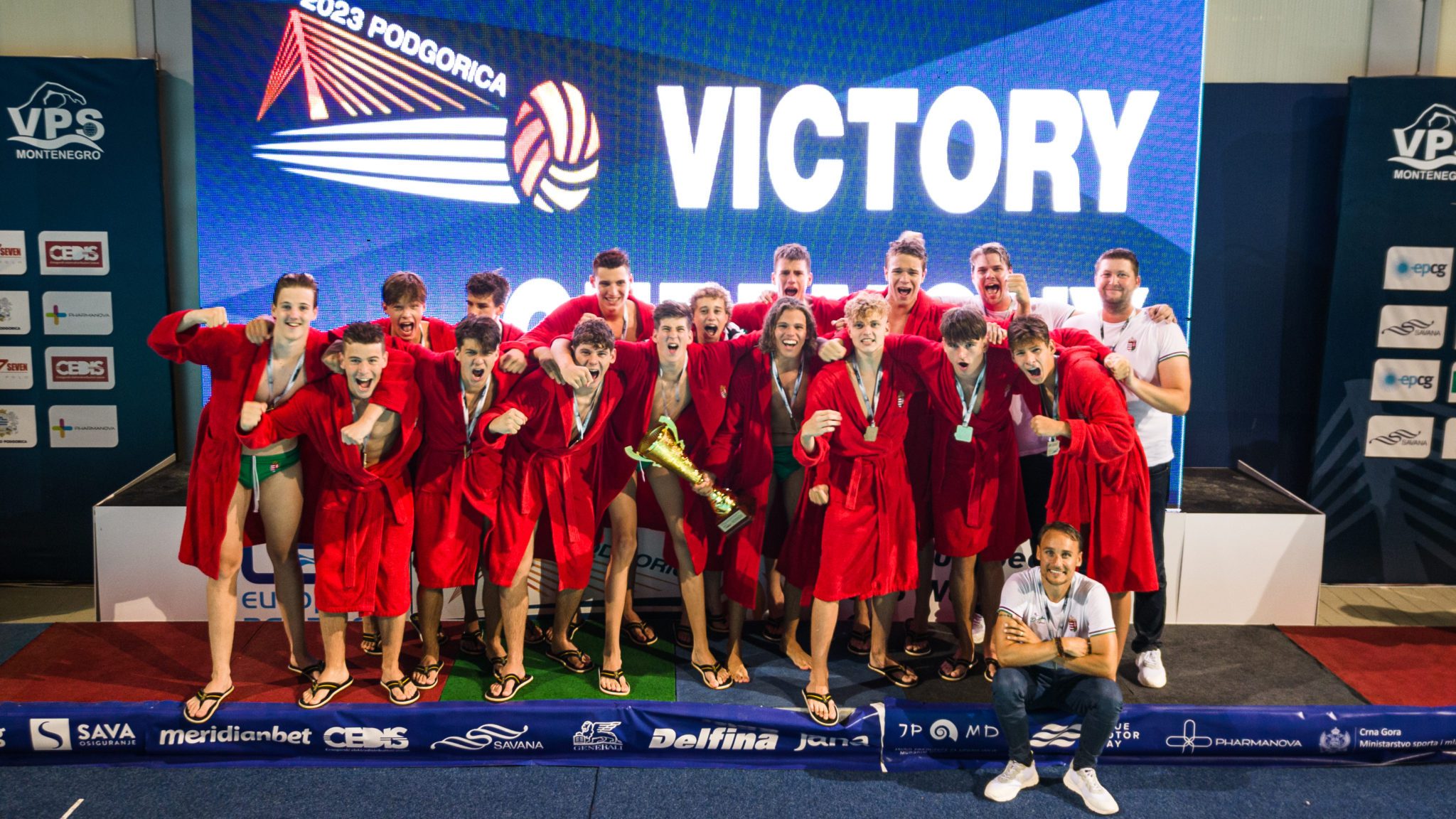
Hungary, the gold medal at the 2023 European U15 Championships Photo: WPF of Montenegro
-Hungary was a regular participant in all 11 semifinals at the age group Worlds and Europeans between 2019 and 2023 and won nine medals (6 gold medals)
4 Hungary won gold medals at all four cadet championships that have been held so far (three European U15 and one World U16 Championships)
-The national teams of Greece played in nine semifinals and won five medals (1 gold).
-Serbia reached the top 4 eight times and clinched seven medals (3 golds)
-Spanish players of the cadet, youth and junior age qualified for the semifinals six times between 2019 and 2023 and took five medals, but they never climbed the highest step of the podium.
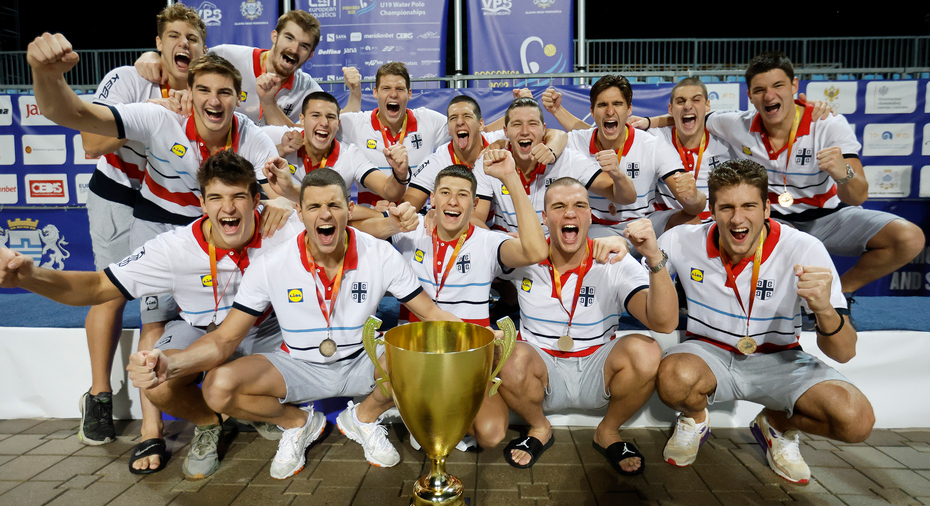
Serbia, the gold medal at the 2023 European U19 Championships Photo by Laszlo Balogh/Total Waterpolo
Besides these four nations, Italy, Montenegro, Croatia, the USA and the Netherlands featured in the semifinals at the age group competitions in the past four seasons.
Montenegro won three medals (no golds among those) in four semifinal appearances.
Italy secured a spot in the Top 4 three times and won a medal on each occasion (gold, silver and bronze). Still, the Italians failed to pass the hurdle in the quarterfinals at the World and European Championships in 2022 and 2023.
The junior team of the USA made history this summer, winning bronze at the World U20 Championships in Otopeni. That was the first-ever medal for the male teams of the USA in a 50-year-long history of the World Championships. It was only the second appearance of the USA’s junior or youth teams in the Worlds semifinals (after 4th place at the World Junior Championships in 1991).
Croatia and the Netherlands have one 4th-place finish each.
Medals at the World and European Championships for players born in the 21st century
The players born in 2001 and later
- 2020 European U19 Championships canceled
- 2021 World U20 Championships: 1. Serbia, 2. Italy, 3. Montenegro, 4. Hungary
The players born in 2002 and later
- 2019 European U17 Championships: 1. Italy, 2. Spain, 3. Hungary, 4. Greece
- 2020 World U18 Championships canceled
The players born in 2003 and later
- 2022 European U19 Championships: 1. Serbia, 2. Spain, 3. Hungary, 4. Greece.
- 2023 World U20 Championships: 1. Hungary, 2.Serbia, 3. USA, 4. Greece.
The players born in 2004 and later
- 2019 European U15 Championships: 1. Hungary, 2. Montenegro, 3. Italy, 4. Greece.
- 2020 World U16 Championships canceled
- 2021 European U17 Championships: 1. Serbia, 2. Greece, 3. Hungary, 4. Spain
- 2022 World U18 Championships: 1. Hungary, 2. Serbia, 3. Spain, 4. Netherlands.
The players born in 2005 and later
The first tournament for this generation will be the European U19 Championships next year.
The players born in 2006 and later
- 2021 European U15 Championships: 1. Hungary, 2. Spain, 3. Greece, 4. Croatia
- 2022 World U16 Championships: 1. Hungary, 2. Greece, 3. Serbia, 4. Montenegro
- 2023 European U17 Championships: 1. Greece, 2. Serbia, 3. Spain, 4. Hungary
The players born in 2007 and later
The first tournament for this generation will be the European U19 Championships in 2026.
The players born in 2008 and later
- 2023 European U15 Championships: 1. Hungary, 2. Montenegro, 3. Greece, 4. Serbia.
What really matters?
Medals won in the junior, youth, and cadet championships may not always accurately predict a player’s performance in his senior years. It is the process of learning, growing, and fostering a strong team spirit that trully matters. If these objectives are accomplished, good results are likely to follow.
Greece is the best example that good results achieved by junior and youth teams can indicate success in the senior age.
The golden row of the Greek junior and youth teams (four golds at the seven age-group championships held between 2017 and 2019) was an overture to the golden era of Greek water polo. Many of the Greek players who contributed to winning those junior and youth titles are the pillars of the senior Greek national team.
However, the road from success in the junior and youth competitions and the medals in senior age is always long.
More articles about Men’s European U15 Championships
More articles about the European Men’s U17 Championships
Articles about World men’s junior and youth championships
Follow us on Facebook, Twitter and Instagram. For more video content, subscribe to our Youtube Channel and Tik Tok account



